Small

Beverley C. Wemple, PI, Institutional Lead
Dr. Beverley Wemple's research focuses on the dynamics of hydrologic and geomorphic processes in upland, forested watersheds. Her work examines the influence of land use practices on geophysical processes with a particular interest in using basic theoretical tools and simulation modeling, in conjunction with empirical field studies, to understand how management of the mountain landscape alters the processes of runoff generation and sediment production in steep, headwater catchments.
More...
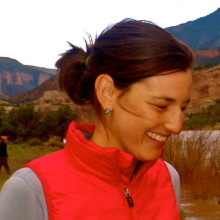
Rebecca Diehl, PI
Dr. Rebecca Diehl is a Research Assistant Professor in the Department of Geography and with the Gund Institute at the University of Vermont. Trained as a fluvial geomorphologist, she is interested in understanding the functioning of river systems to more sustainably manage our water resources. For her current research, she is building a management framework that identifies the existing and potential capacity (with interventions such as restoration) of floodplains to retain sediment and nutrients in order to improve water quality and increase flood resiliency in the Lake Champlain Basin.
More...
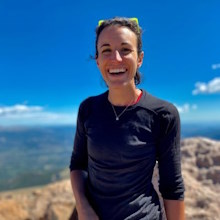
Kate Hale, PI
Dr. Kate Hale is a snow hydrologist, focusing on water resources across the United States, with a focus on the western, mountainous United States. Currently, she is focused on data assimilation and modeling to improve Alaska snow water equivalent assessments (SWE), an area where SWE measurements and relevant observation networks are particularly sparse due to extreme topographic gradients and the state’s vast spatial extent.
More...
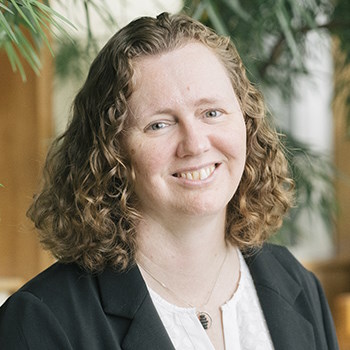
Anne Jefferson, PI
Dr. Anne Jefferson is a watershed hydrologist and geomorphologist who works where people live, work, and play. The goal of her research is to improve the resilience and sustainability of water resources and aquatic ecosystems in the Anthropocene. She combines data collection in the environment, with lab work, numerical modeling, and collaboration with social scientists, engineers, ecologists, and others to solve interdisciplinary problems connecting water and people. Much of her group’s research focuses on urban watersheds, stormwater management, and plastic pollution.
More...

Scott Merrill, PI
Dr. Scott Merrill is a Systems Ecologist with research spanning a wide range of both natural ecosystems and social-ecological systems. Projects include examining dynamics of change within pest-crop agroecosystems including aspects of climate change, examining ways to nudge human behavior to help protect the health of our livestock herds, and looking at factors motivating behavior that affects water quality in the Lake Champlain watershed.
More...

Donna Rizzo, PI
Dr. Donna Rizzo's research focuses on the development of new computational tools to improve the understanding of human-induced changes on natural systems and the way we make decisions about natural resources. In 1995, she co-founded a small Vermont business to help speed the diffusion of research and new technologies into environmental practice.
More...
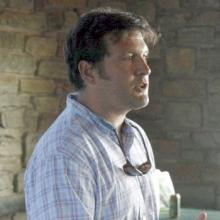
Andrew Schroth, PI
Dr. Andrew Schroth is a low temperature biogeochemist and a Research Associate Professor of Geology at the University of Vermont. His research focuses on quantitatively describing the environmental factors controlling nutrient and pollutant lability in soils and aqueous environments, with an overarching focus on understanding and/or predicting a biogeochemical system's response to changes in landscape and climate.
More...
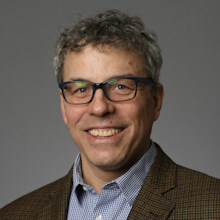
Chris Skalka, PI
Dr. Chris Skalka is currently serving as chair of the Department of Computer Science, Christian brings a strong commitment to faculty affairs and success to his new position as associate dean for faculty affairs. Christian has been a member of the UVM faculty since 2002. His research interests include programming languages, cybersecurity, and computational methods in environmental science. Christian received his B.A from Saint John’s College, an M.S. from Carnegie Mellon University, and a Ph.D. from Johns Hopkins University.
More...
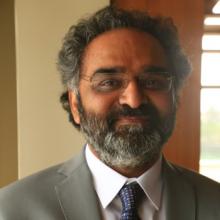
Asim Zia, PI
Dr. Asim Zia is currently serving as a Professor of Public Policy and Computer Science in the Department of Community Development and Applied Economics at the University of Vermont. Dr. Zia is undertaking NSF funded work on developing computational integrated assessment models that project and quantify high-resolution impacts of global climate change and land-use land cover change on watershed scale hydrological systems and lake systems, and their feedbacks on social systems.
More...
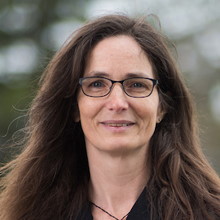
Carol Adair
Dr. Carol Adair is a global change ecosystem ecologist and biogeochemist who uses theory, experimentation, and quantitative methods to understand ecosystem responses to natural and anthropogenic environmental change. She believes that understanding and predicting the response of ecosystems to environmental changes is crucial for sustaining and managing important ecosystems.
More...
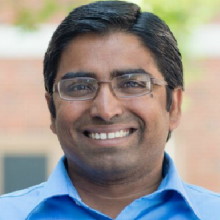
Appala Raju Badireddy
Dr. Badireddy and his research group conducts interdisciplinary research on: (1) sustainable membrane processes with the focus on water & wastewater treatment, and resource recovery, (2) environmental nanotechnology with the focus on applications and implications of engineered nanomaterials, and (3) nanometrology with the focus on developing enhanced darkfield-hyperspectral imaging (ED-HSI) microscopy methods for detection and quantification of engineered nanomaterials and co-contaminants in environmental and biological matrices.
More...

Noah Beckage
Noah Beckage is a Research Computing Facilitator for CIROH on the Lake Champlain Harmful Algal Blooms (HABs) forecasting project. A Vermont native, Noah graduated with Honors from UVM in 2023 with a B.S. in Biological Sciences and minors in Computer Science and Statistics. His interdisciplinary background equips him to develop and maintain software for the HABs project, and also to create tools to extract and process extensive hydro-meteorological datasets for researchers across the broader CIROH community. When he's not writing code or squashing software bugs, Noah enjoys hiking, skiing, and taking dips in the lake - when it's algae-free, of course!

Breck Bowden
Dr. Bowden is the Robert and Genevieve Patrick Professor in Watershed Science and Planning in the Rubenstein School of Environment and Natural Resources at the University of Vermont and currently serves as the Interim Associate Dean for Faculty Development and Research. He is the Director of the Vermont Water Resources and Lake Studies Center and the Lake Champlain Sea Grant program and leads the Vermont component of the Northeastern States Research Cooperative.
More...

Nicholas Cheney
Nick Cheney is an Assistant Professor of Computer Science and a core faculty in Complex Systems and Data Science. His research is in bio-inspired artificial intelligence. His research lab, the UVM Neurobotics Lab, draws inspiration from natural systems, and especially biological learning processes (e.g. evolution, development, and lifelong learning) to design machine learning algorithms which create more flexible, scalable, and context-aware robots and decision-making systems (particularly, deep neural networks).
More...
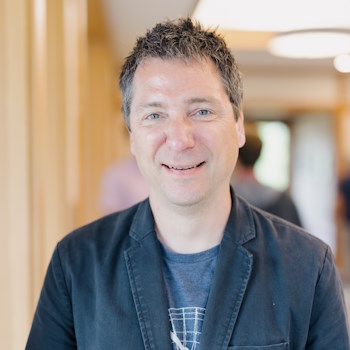
Patrick Clemins
Patrick Clemins is the Director of Research Computing and Data for large research initiatives and holds an Adjunct Assistant Professor position in the Department of Computer Science at the University of Vermont (UVM). In these roles, he directs a team that facilitates the use of advanced computing resources by researchers working on large, interdisciplinary and multi-institutional projects, collaborates with project leaders to administer existing grants and write new grant proposals, and publishes on the computational aspects of the research efforts. In addition, in a previous role at UVM, he led a collaboration to build a statewide research and education network for Vermont's schools, museums, libraries, and other research and educational institutions. Before moving to Vermont, he was the Director of the AAAS R&D Budget and Policy Program where he served as an international expert on the U.S. federal research and development investment. Prior to joining AAAS, he was an AAAS Science and Technology Policy Fellow at the National Science Foundation in the Directorate for Biological Sciences. He received his bachelors, masters, and doctorate in Electrical and Computer Engineering from Marquette University, focusing on machine learning, digital signal processing, and bioacoustics.
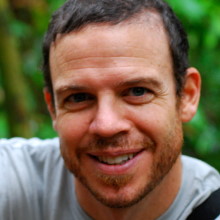
Brendan Fisher
Dr. Brendan Fisher is Professor at the University of Vermont. His research and fieldwork lie at the nexus of conservation, development, natural resource economics and human behavior.
More...
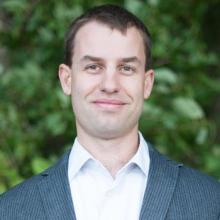
Scott Hamshaw
Dr. Scott Hamshaw is a machine learning specialist with the U.S. Geological Survey in the Water Mission Area as well as an adjunct assistant professor in Civil & Environmental Engineering. Scott specializes in understanding the intersection of water resources and the built and natural environment.
More...

Imad Hannoun
Dr. Hannoun has provided technical analysis for numerous projects, working with engineering firms and government agencies. Over his career, he has acted as project manager for over 160 hydrodynamic and water quality investigations for municipal, government, and academic clients. Dr. Hannoun has extensive experience in the development and application of complex water quality models, ranging from one to three dimensional representations. Dr. Hannoun is a licensed engineer in Virginia, Nevada, and Arizona. Imad was recently presented the Friend of NALMS award in recognition of his work on lake management and his contribution to the NALMS organization.
More...

Peter Isles
Dr. Peter Isles is an aquatic biologist for the , Vermont Department of Environmental Conservation. His research includes Lake Champlain water quality monitoring, zebra mussel, algae, and cyanobacteria monitoring on Lake Champlain and selected inland waters.
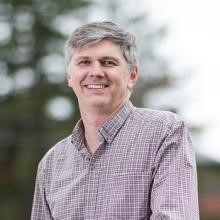
Christopher Koliba, Collaborator
Dr. Christopher Koliba is a Professor in the Community Development and Applied Economics Department at the University of Vermont, the Director of the Master of Public Administration (MPA) Program, the Co-Director of the Social Ecological Gaming and Simulation (SEGS) Lab and a fellow at the Gund Institute for Environment.
More...
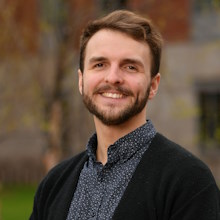
Scott Lawson
Scott Lawson is a civil engineer and hydrologist who's work spans statistical and computational modeling, automation, and geospatial analysis. Scott has experience mapping floodplains in a range of settings from parcel-scale Flood Insurance Rate Map revisions to basin-scale probabilistic mapping. As a CIROH researcher, Scott is using machine learning and physical modeling to explore how flood routing might be improved in continental-scale hydrologic models.
More...
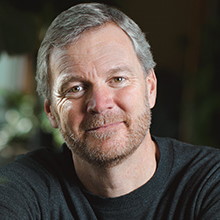
Taylor Ricketts
Dr. Taylor Ricketts is Gund Professor and Director of the Gund Institute for Environment at the University of Vermont. Taylor’s research centers on the overarching question: How do we meet the needs of people and nature in an increasingly crowded, changing world? His recent work has focused on the economic and health benefits provided to people by forests, wetlands, reefs, and other natural areas.
More...

Eric Roy
Dr. Eric Roy is an associate professor, interim director of the Environmental Sciences Program at the University of Vermont. His research includes Nutrient biogeochemistry & management, ecological engineering & design, aquatic ecology, food systems, material flow analysis.
More...

Severin Schneebeli
Dr. Severin Schneebeli is leading the Mesosynthesis Laboratory at the University of Vermont as an Assistant Professor of Chemistry. He aims to answer the question how traditional chemical concepts like selective recognition and catalysis for environmental applications can be applied to precision-polymer synthesis. Dr. Schneebeli is particularly interested in inventing new ways to build readily accessible, real-time chemical sensors to detect pollutants in the environment.
More...
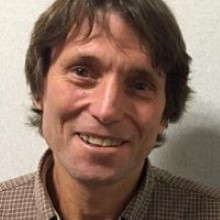
Jamie Shanley
Dr.Jamie Shanley works with the USGS New England Water Science Center. His research include hydrologic and biogeochemical cycles; physical, chemical, and isotopic approaches to identify water sources and track water flowpaths from precipitation and snowmelt, through the subsurface, to the stream; mercury movement in streamwater in forested and agricultural landscapes; the effects of ski resort development on water quantity and quality.
More...

Trisha Shrum
Dr. Trisha Shrum is a behavioral and environmental economist focused on using transdisciplinary theory, collaborations, and methodologies to improve our understanding of the drivers of decision-making, especially for decisions that relate to climate change and natural resources.
More...
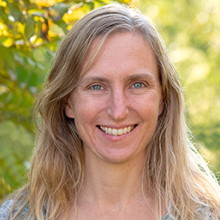
Kris Stepenuck
Dr. Kristine Stepenuck is Extension Program Leader for Lake Champlain Sea Grant and Extension Associate Professor of Watershed Science, Policy and Education in the Rubenstein School of Environment and Natural Resources at the University of Vermont.
More...
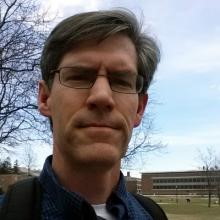
Scott Turnbull
Scott Turnbull is a software engineer accomplished in the creation of integrated software solutions for complex systems. Scott has recently participated in research into applications and impacts of precision agriculture, and modeling of national food supply security with regards to Ecology and Evolution of Infectious Diseases. Previous research was with Vermont EPSCoR in the Basin Resilience to Extreme Events and the Research on Adaptation to Climate Change.
More...
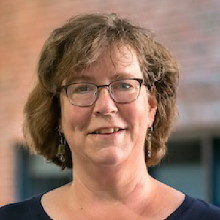
Kristen Underwood
Dr. Kristen Underwood has more than three decades of academic and professional experience in water resources, bridging fields of aquatic ecology, fluvial geomorphology, hydrogeology and environmental engineering. Her current research involves the application of advanced computational tools to address environmental challenges in water resource management and to support pragmatic solutions within an adaptive management framework.
More...
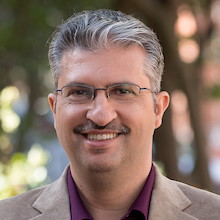
Safwan Wshah
Dr. Safwan Wshah joins UVM CEMS from PARC (Palo Alto Research Center)- A Xerox company, where he worked as a research scientist in the fields of machine learning/deep learning, computer vision, and image/ video processing. He is currently investigating machine learning algorithms to be applied in Energy, Transportation and Healthcare fields.
More...